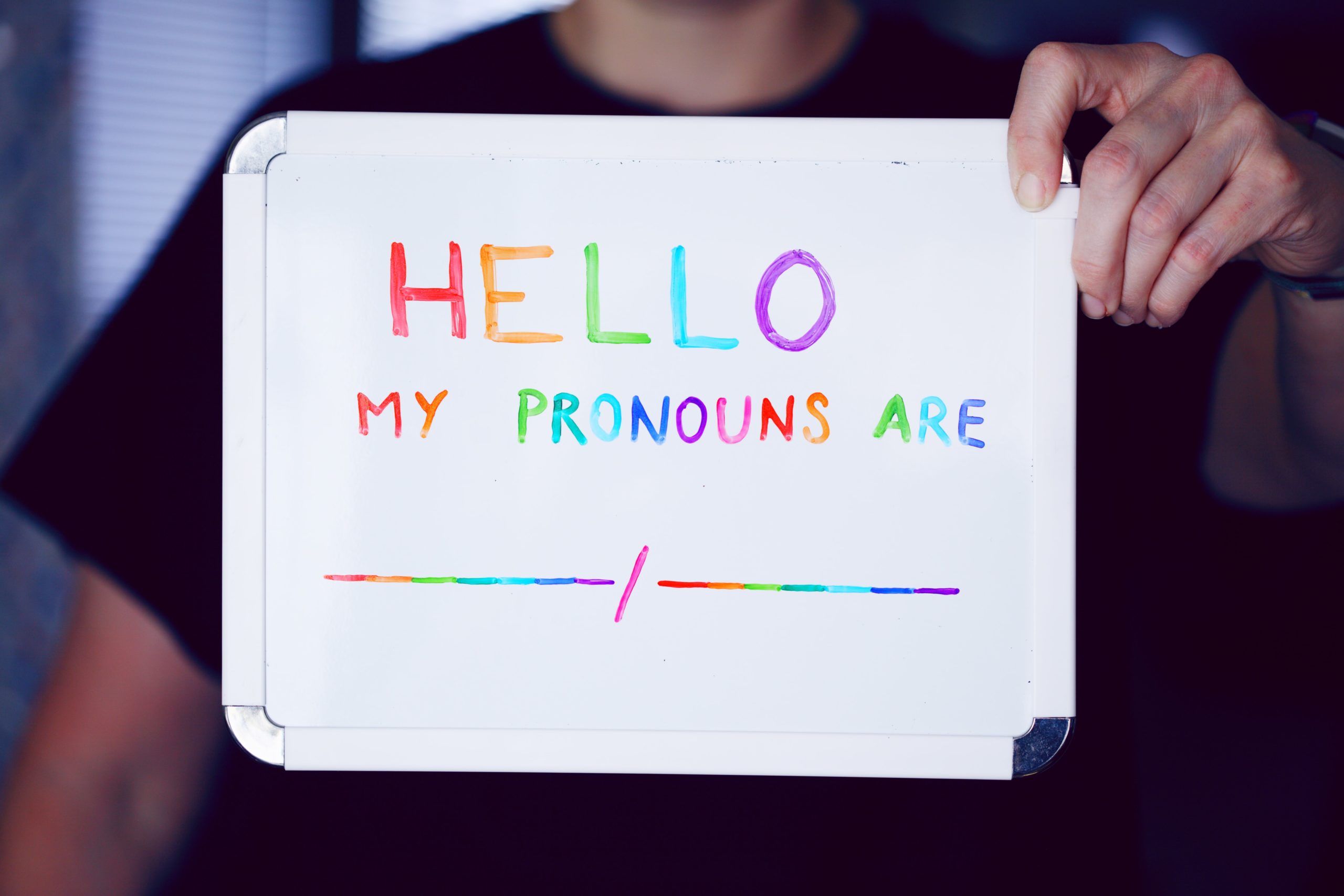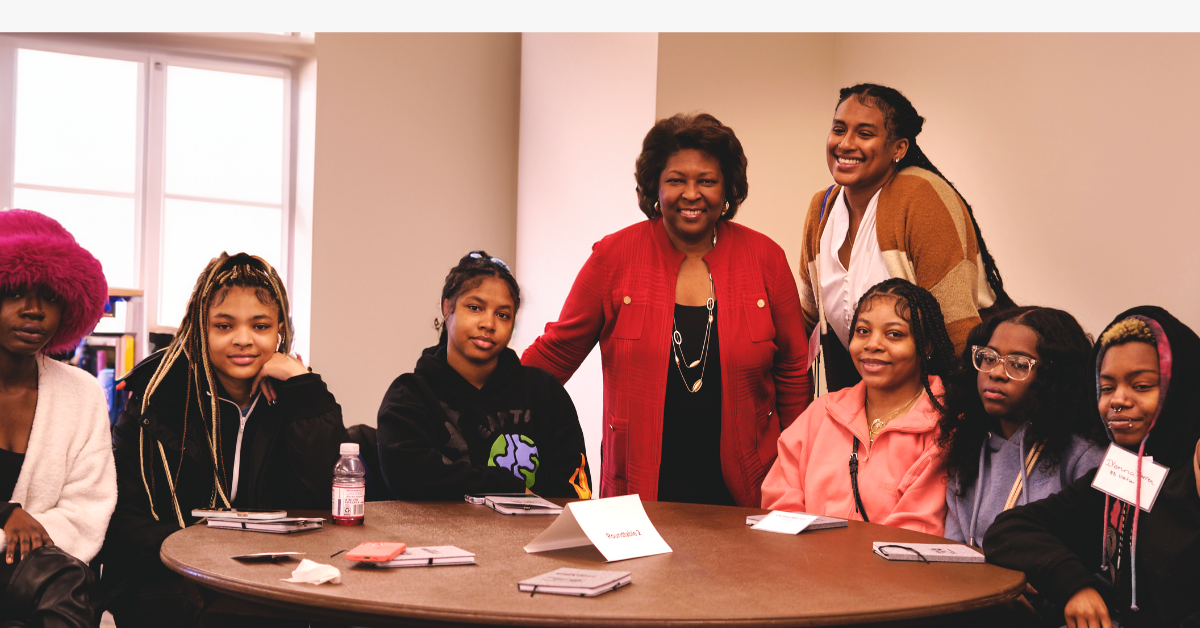
What Is Gender Equity?
Two guiding principles are at the core of gender equity: fairness and impartiality. Fairness has to do with just treatment without favoritism or prejudice, while impartiality is defined as treating all parties equally. Equity, in its simplest terms, means meeting communities where they are and allocating resources and opportunities as needed to create equal outcomes for all community members (find out more about the differences between equity and equality here).
Gender equity, defined by the European Institute for Gender Equality, is the “provision of fairness and justice in the distribution of benefits and responsibilities between women, men and all genders.” Gender equity is important because, historically, societies around the world have deemed females, transgender people, and nonbinary people as “weaker” or less important than males.
Today, gender equity has helped shape and change the roles and expectations of men, women and all genders at work, home and in society. Our world is a better place when all people are accepted for their talents, skills, and abilities, regardless of gender.
What Does Gender Equity Mean?
Gender equity means respecting all people without discrimination, regardless of their gender. It also means addressing gender inequalities that limit a person’s ability to access opportunities to achieve better health, education and economic opportunity based on their gender.
Examples of Gender Equity
Below are several examples of gender equity and how to practice it in everyday life and society.
Example 1: Gender Equity at Home
Home is where people spend most of their time and is often the first place where children learn gender discrimination. Girls are typically taught that women are responsible for cooking, cleaning, washing clothes and other household chores, while men are not responsible for many household chores outside of yardwork. This mindset has disadvantaged women for millennia. One way parents can practice gender equity in the home is by assigning chores to their children of all genders equally to teach them domestic responsibilities, with the goal of preparing them to take care of their future homes as adults.
Example 2: Gender Equity in the Workplace
World War II was the first time in American history that women left their homes in vast numbers to enter the workforce because their husbands had enlisted or were drafted to fight in the war. Since then, women have continued to pursue professional careers, but not without barriers or what is often referred to as the glass ceiling. Society equally frowns on men if they are interested in careers traditionally relegated to women such as being a dental assistant, childcare worker, administrative assistant or being a stay-at-home parent. Gender equity in the workplace would be where men, women and all gender identities forging the career path they want and being afforded the same opportunities, including promotions, leadership roles, projects and more, without their gender being a deciding factor in workplace decisions.
Example 3: Gender Equity in Sports
Women have made great strides in the world of professional sports, but the effort to close the pay gap has been abysmal. The WNBA has fewer games—36 per season—while the NBA has 82. Female professional basketball players work just as hard at developing their craft and only make a small fraction of their male counterparts’ salaries, while playing nearly 50% of the games in an NBA season. Such examples perpetuate discrimination and teach that gender roles are acceptable in modern times. Gender equity in sports is when all league athletes are given equitable opportunities. In the case of the WNBA and NBA, it means salaries and the number of games played are looked at from an equitable lens, instead of giving preference to male athletes.
Benefits of Gender Equity
Gender equity improves opportunities for all and allows people to pursue their dreams despite gender. Below are several benefits of gender equity.
Example 1: Health Care Benefits
We cannot overemphasize the importance of gender equity in health care because the medical profession has favored the male anatomy in research and education. It was not until 1993 that Congress passed a law requiring clinical trials to include women and minorities in the study of diseases and treatments. Yet to this day, doctors are more likely to dismiss a woman’s physical pain as being mental, emotional or even suggest that the patient is a hypochondriac. An article on WebMD revealed that in 2016, Dr. Marjorie Jenkins published a national survey of sex and gender in medical education stating that only 34.5% of medical students “would feel prepared to manage sex and gender difference in health care.” True gender equity in health care means all genders are heard and treated well, instead of having their pain be dismissed based on their gender identity and anatomy.
Example 2: Workplace Benefits
Employers benefit when the contributions of collective minds are respected and received without prejudice, discrimination or favoritism. A work environment that welcomes diversity of thought and is free from inequities improves life satisfaction for women and men. Gender equity drives creativity, innovation and opens the door to endless possibilities.
Example 3: Societal Benefits
Gender equity removes the obstacles to progress that are inherent in our society and it is the bridge to treating all people fairly, whether they are male, female, transgender or nonbinary. It solves problems with our labor force by providing more opportunities for women to excel in professions currently dominated by men. It allows all genders to express thought without fear of bias or bigotry, which increases collaboration in families, communities, work and politics. Gender equity reduces crime and violence against women and makes communities safer on all levels.
How to Promote Gender Equity in Your Community
One way to promote gender equity is to celebrate strong women in all aspects of life. History bears a long list of intelligent and powerful women who have broken barriers and changed the future for women everywhere. Share with your neighbors, community and coworkers what women have accomplished to improve our world and join the efforts of organizations focused on equity work, like United Way of the National Capital Area. You can get involved by giving, advocating or volunteering, as well as by educating yourself more on equity by earning an Equity Advocate Badge, taking United Way NCA’s Diversity, Equity & Inclusion Quiz, signing up for the 21 Day Race Equity Journey and more.
When none are ignored, all will thrive.


